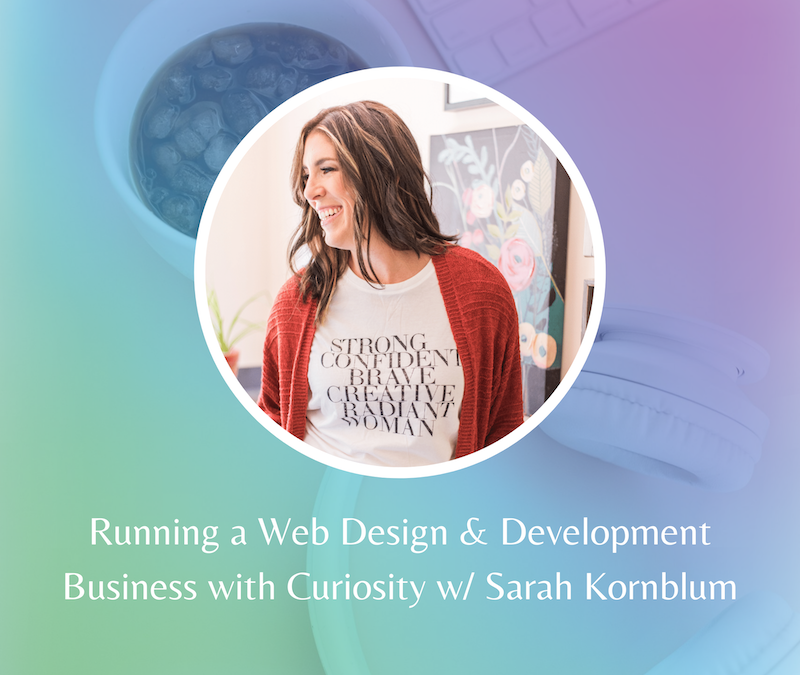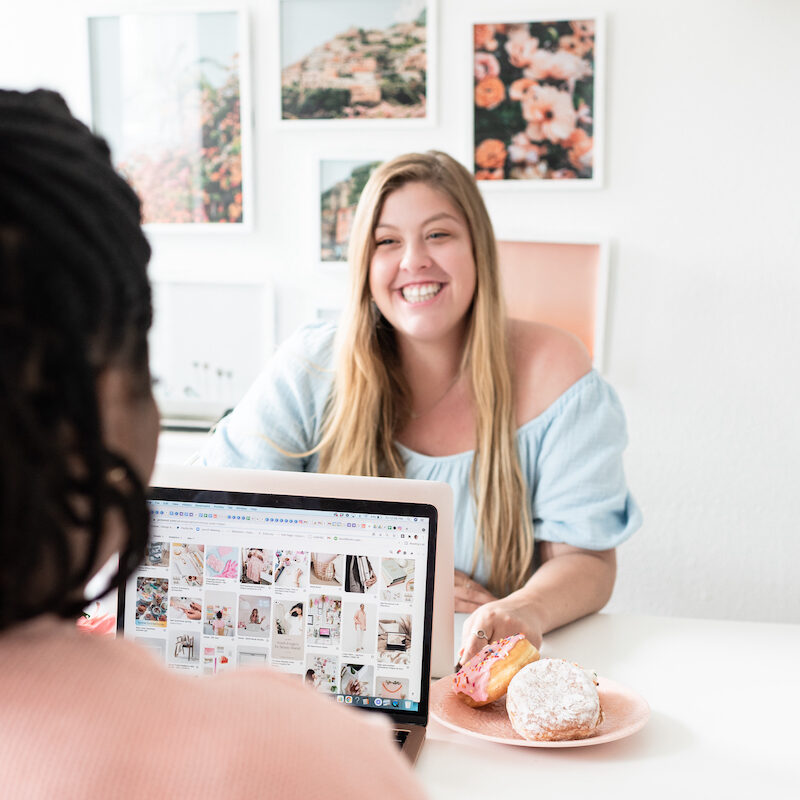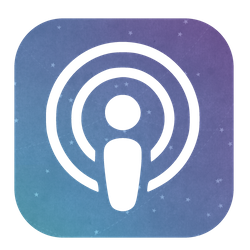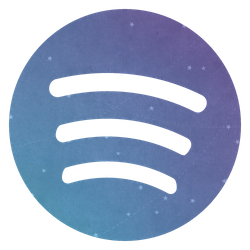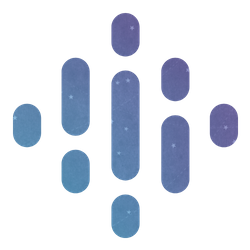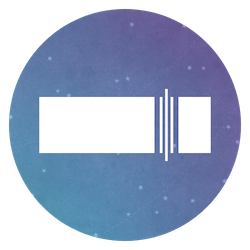episode 45
Running a Web Design Business with Curiosity with Sarah Kornblum
Episode 45: Running a Web Design Business with Curiosity with Sarah Kornblum
Show Notes:
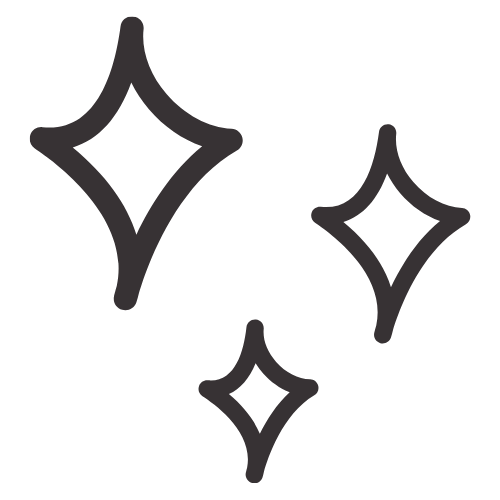





Episode Transcript:
Karyn Paige, Sarah Kornblum, Sam Munoz
Sarah Kornblum 00:00
I use social media to help me build my own community. And I do that by doing posts on Instagram doing real fun Instagram, so people can get that connection with me and learn about my business before they’ve even met me. And so I use it as a as a tool just to help me build awareness around my business, and build my community. Because when people see me posting, they comment on my posts, I respond back, we start messaging each other. And I’ve created a nice community around social media. I also really enjoy Facebook groups. And if you can get into the right groups, you can really add value to those groups. And it’s not about selling your services. And I feel like it’s never about selling your services, but it’s just providing value. And as long as you’re providing value and creating positive interactions with people, then people when they’re looking for a website will say, Oh, hey, I know Sarah does website. Let me talk to her.
Sam Munoz 01:06
Welcome to Making website magic where we empower women to step boldly into their web design businesses follow their intuition and claim the success they’re worthy of. I’m Sam Munoz.
Karyn Paige 01:16
And I’m Karen Page, where the Tech Wizards behind Sam Linnaeus consulting and the making website Magic School of Business. We’re two women here to talk about what it actually takes to run a web design business that’s aligned with your vision.
Sam Munoz 01:29
Spoiler alert, it probably isn’t what you think it is ready to hear about everything from refining your business vision, networking with intention and creating a magical client experience. Let’s do it. Hello, ladies. Yes, that’s right. I said, ladies, we’ve got Karen obviously. Hello, Karen and Sarah, one of our mentees from the making website Magic School of Business mentorship. So Hello, ladies. Hello.
Karyn Paige 01:58
Yeah, we’re very excited to have you here. Sarah, I’m really excited to get into this conversation with you and pick your brain and introduce you to our listeners.
02:07
I’m very excited to be here. Thanks for having me.
Sam Munoz 02:10
Gonna be fun. As always, we like to keep these conversations. Well, conversational. So this is going to be no exception. Before we even get into all the juicy details about your business, the mentorship, just everything. We want to start with your human. That’s how we start things in our program, right? We always center you as a human. So we’d love for you to just take some time, introduce yourself, tell us a bit of your backstory, how you started your business, all of those things.
02:39
So I’m Sarah kornblum. I originally started as a middle school special ed math teacher. I did that for 12 years. And I decided that I did not want to do that anymore. And so I was figuring out what do I want to do next in my life. And so I found web design by accident, because I was kind of tech savvy and some people that I knew needed a website for their businesses. And so they came to me and said, Can you make us a website? And so I said, Well, I don’t know, but I’ll figure it out. And so things went quickly from there. So I spent about probably six months as like a self proclaimed web designer and developer, without really any clients just sort of building my knowledge, building my face my confidence, before even taking on my first client. So it was a slow grow for me. But now I can very happily say that I am no longer teaching, and I do web design and development full time now.
Sam Munoz 03:37
So cool. You know, it is fascinating how many people have a similar way that they kind of like fell into web design and development. Right? It’s like, I had some tech skills. Some people asked me to build them a website, I started doing it, I realized it liked it. And that’s how I got started. And that’s just so interesting is just such a fun through line with a lot of people that you know, I bet you there’s plenty of people listening to that, that are listening to this episode thing and of themselves. That’s how I started to. So that’s really cool. Would love to go a little bit deeper in terms of you being a teacher and like transitioning and all of that like what what has that journey been like transitioning from a very like traditional job to now being full time where you’re owning the business, you’re running things, you’re in charge.
04:22
I feel like for teaching, there’s a very set schedule. Like I knew exactly what I was going to be doing September to June every year, at eight o’clock in the morning school would start at two o’clock in the afternoon school would end I’d go home and that was my day. And so now owning my own business. I feel like this schedule is up to me. Which if I don’t want to do anything one day, that’s totally fine, but somebody still has to do it so true. It’s the flexibility to work when I want to work which I really enjoy. But it’s also knowing that things need to get done other why’s my business doesn’t move forward?
Sam Munoz 05:02
Yeah. Is the flexibility one of the driving factors to why you decided to start a business? Or what was like that? Was there like a moment or what was the reason?
05:13
Part of it was that I was moving far away from my family and a lot of my friends. And so it gave me the ability to be able to travel and visit with people whenever I wanted to. So if I want to go on a Tuesday and drive to see some people, I can go on a Tuesday and drive to see some people. But that means that I might be working all day on Wednesday. So it’s just it’s that it’s the flexibility to go where I want when I want and like, it doesn’t matter as a web designer, where you’re working from, I could be working from California, I could be working from Chicago, like it doesn’t, it doesn’t matter. Nobody knows, nobody cares. And so it gives me that flexibility to be wherever I want, at any given point in time, although truthfully, mostly, I’m home.
Sam Munoz 06:01
You couldn’t do that, like being a team? No,
06:03
it was like your experiment working from anywhere in your house, even though like you traditionally work in your office, like you were testing out some different places in your house to work. So sometimes, it’s a nice day out. So I might take my laptop outside and do some work outside. So it’s that it’s that kind of flexibility to be able to work wherever I want. At any given point in time.
Karyn Paige 06:24
I can totally relate to that, too. Sir, I’m wanting to circle back because you very clearly were like, I can do what I want on a Tuesday, but work still has to get done and the business, I’m accountable for this business moving forward. And I think that’s something that sometimes people get confused with this idea of, of I can work from anywhere. And even the people in our lives are like, well, you run a you run your own business, can’t you just like, stop what you’re doing in the middle of the day and like, come with me to like run errands, it’s like, no, I’m still out here working. But ultimately, you get to decide on your schedule, and what flexibility looks like for you. But there is still that underline of like, I like to do the work. And nobody’s gonna tell me when I do it, I get to decide what I do it
07:06
exactly. I also as a side, Coach rolling for a university. And so I have the flexibility to be able to take two hours off in the middle of the day and go do that. So that’s also nice to be able to fit that into my schedule, just because I do have that flexibility.
Sam Munoz 07:23
Well, that’s awesome. It’s it sounds like that’s pretty much like that main driving force of like, why a business in general. And I would love to also talk about like, what is it that you like about owning and running a web design slash development business, versus I don’t know anything else.
07:40
I like the web design and development because it is techie. And I like that like figuring out of those like puzzle pieces. Like when somebody asks you to do something, it seems like it should be easy, but it’s not always easy. So it’s like figuring out those little pieces of the puzzle to make it all go together. And then the design aspect of it lets me be creative. And I’m not traditionally an artistic person. Although I like to think that I am, I know that I cannot do a painting whatsoever of any kind. So that’s not my artistic ability, I’m not going to draw you a picture. But I can put things together on a page to make them work and look good and flow properly. And that’s where that like design placement comes in. And so I like that I like those two aspects of it, because they are very different.
Sam Munoz 08:29
Totally, like one is very problem solving, and one is designing and like a creative outlet. And it’s connected to go solving of the problem. Definitely I can totally relate to that.
Karyn Paige 08:39
Yeah, so I’m thinking of like this idea of like, your openness to solving problems, even if it’s not as easy as you think it’s gonna be like you just move forward and you’re like, I’ll figure this out, like you have that attitude. And that I think, is a theme in your business as well, right? Like this idea of people have problems you offer solutions. Let’s go. Would you say that that is that that’s how you approach your business?
09:08
Oh, that’s definitely how I approach my business. I like to come into a project, a new project or a new client meeting even. And I don’t feel like I’m selling things. I mean, I provide a service and I have a service based business. So I am in essence selling my services to people. But when I come into a client meeting for the first time, I don’t feel like I am getting on a sales call. I feel like I’m coming in with a solution to their problem, whether they don’t know how to solve it, they don’t have the time to solve it. They don’t have the technical skill to solve it. And I’m there saying yes, I can do this for you. This is what I’m going to do. And this is how we’re gonna do it.
Sam Munoz 09:49
Yeah, totally. That’s why, you know, we have an episode about the discovery call and that we talked about the fact that it’s not really a sales call. It’s really just like, what’s your problem? Can we help you solve it, what are you looking for? And then it’s just more of like a fitting thing, right? It’s like, does this work for you? Does this not work for you? And showing up with your like confidence in your skills, I think helps a lot to do you think that that’s, that also plays a role where it’s just like, you know what you know, and you know, what you don’t know. And then you can tell someone that if they’re coming to you with a problem that you can or cannot solve?
10:21
Yeah, oh, definitely. I feel like it’s important to know where your strengths are, and where you want to spend your time as a designer and developer, because I feel like so much can get folded into web design and development that you can all of a sudden be taking on all of these other projects that you’re not interested in taking on. And so knowing where your strengths lie, and where you want to spend your time is very important when you go into calls with prospective clients, and knowing what you can and are willing to offer them. I feel like when people come to me with an issue for their website that they would like to solve, or they’re coming to me with a problem in their business that they want to solve with their website. I might not know right off the bat, how to solve that particular problem. But if you know that you have the skills to do the other parts, you can come up with a solution that will work for the problem that they have.
Sam Munoz 11:19
Yes, what a great way to approach it, because it’s less of like, searching for clients. And like that whole like mindset of like, that’s a scarcity of like, I need clients. And it’s really just like, I have the skills, you can come to me if you need help, because I am here. Yeah. And and how does that relate to the way that you kind of package things up? If that makes sense. For example, someone comes to you and they’re like, I have this problem. You’re not necessarily 100% sure how you’re going to solve it. But you know that you have the skills to do it. But sometimes, you know, they’re complex, we don’t know, we don’t know A to Z, yet. We just know like the first couple of steps. So how do you go about telling someone? This is just like a strategy idea for people that are listening? How do you go about telling someone like, yes, we can solve this problem? Here’s how you can work with me like, what how does that happen for your business,
12:08
I never do that on the initial call. I’m not problem solving for people on the spot. I feel like if I do problem solve for people on the spot, it’s not going to be a good solution. And so I feel like I always need to spend time thinking about our conversation. So I’ll have a conversation with a prospective client coming in. And I will tell them that I am going to take all this information that we talked about, and I’m going to look at their website, I’m going to think about some things just to come up with the best solution. Because in a 20 or 30 minute conversation, I’m not going to come up with the best solution for you. So it does, it requires thought and it requires time and just think like letting things sit and I feel like this is the just in life, this is the biggest lesson that I’ve I’ve learned and taken away is just like sometimes you just gotta let things sit for a minute, and just let it be and then come back to it. And then you’ll think you’ll be able to think about it in a different way to come up with some good ideas.
Sam Munoz 13:13
Awesome, and you are in the business then of selling the solution. It doesn’t have to be a pretty package that you’re like pigeonholing someone into it’s really like what is their problem? And what is the solution? And I can’t not mention the fact that like that equals like a higher price point also, because not only are you doing the the solutioning? Like the actual implementation of the solution. I mean, you’re also architecting the solution to the problem in that initial like proposal process to
13:42
Yeah, Oh, definitely. Yeah. And I feel like you can’t come up with a full picture of what somebody needs until you do that problem solving piece. Because I feel like a lot of times when people come and they need a website, it’s not just like a website can mean a lot of different things to a lot of different people. And so it’s not just creating a website that can be done really quickly and easily. But it’s putting into place the things that they actually need on their website to make it functional for their business.
Karyn Paige 14:11
I wanted to kind of like pivot more into talking about your your business, like your professional outlook, right? Like getting to know Sarah, that professional. And this conversation around like you are a problem solver you have solutions for people is a very broad identity statement if you think about it, right? Because we’re always like we’re often told that you needed like niche and have like a specific audience or specific platform, etc. Is that an approach that you take to your business as you’re solving people’s problems? Does it matter who the client is does it matter what the tool is?
14:50
So the tool does not matter, nor does the client really, I mean, I do have like an ideal client type that I like to work with. But when people come to me I’m like Looking for people who are looking to build their communities and looking to spread awareness about what they do. And it doesn’t have to necessarily be a nonprofit. But it can just be a business that wants to build their community. And so I don’t rely on any specific platform to do this. I fit the platform and the tools to what the client needs. And not all tools and platforms are good for every client. Again, it’s
Sam Munoz 15:29
like it’s really specifying a solution for a particular type of client, I think that’s something really important for people to hear, obviously, like, if you are specific around a particular platform, that is a way to like segment yourself and become referral for that particular platform. But this is why in one of the classes in the mentorship, we talk about like, do you care about the client? Like, do you want to work with a particular type of dream client? Do you want to do a particular type of project? Is it somewhere in between, like, what is your ideal scenario, so that you can position yourself but to your point, it’s like, I want to solve problems for like these types of people, the platform, the tool that all of that is kind of irrelevant, as long as we’re solving their specific problem in that,
Karyn Paige 16:13
too, because you are so open to so many possibilities of clients and projects. What do you like to do? Like, what skills do you like to use in your business?
16:26
So this skills that I like to use in my business are this skills that are the more technical skills that flow into the design, a friend of mine said that like, in a room full of designers, I consider myself a developer. But in a room full of developers, I consider myself a designer. And so I feel like depending on who I’m talking to my strength fly in different places. And so what I like to do on each project is utilize those skills to the best of my abilities to make the project the best it can be. And so depending on who I’m working with, or what type of project it is, I’m going to draw more on those skills. Now, if given a preference, e commerce is not my favorite, just because I find that it’s kind of tedious. Will I do it? Yeah, I’ll do it. But it’s not, it’s not a favorite of mine, just because there’s a lot of data entry type stuff that you just have to put in, over and over, it’s a lot of copy and paste. And so that kind of project is not as interesting to me as something that’s a little bit
Sam Munoz 17:36
more unique. And you know, it’s so interesting, because we obviously have interviewed multiple people from the mentorship. And it’s just a reminder that we all have different ways of running businesses. And we have different ideal clients, we have different ways that we sell our services, different packages that we put together. And I’m curious, you’re focused on a particular type of client and then fitting them to a solution? Do you ever find that it becomes difficult to create proposals? Or how do you go through that process? Is it does it feel like you’re kind of starting over every time? Or do you have something that you’re basing everything on to kind of give you a ballpark? Like how does that process work?
18:14
I have ideas in mind as I’m talking to somebody, it also depends on if they already have an existing website that’s on a specific platform and how they feel about that platform. So if somebody comes to me on a Squarespace platform, and they want to stay on Squarespace, because they know how to use it, I’ll say on Squarespace because they know how to use it. But if they’re looking for a specific solution, depending on how technically sound they are as a consumer of a website, that will determine what platform I opt to put them on, if they’re going to be maintaining it themselves, or they would like me to maintain it or have somebody else to maintain it, that makes a difference as to what platform that I put them on. Because those are all things that go into what solution is going to be the best for them.
Sam Munoz 19:05
I think it’s just helpful to hear the different ways that we like, again, approach business. Speaking of which, I think it would be kind of cool to kind of shift the conversation, because something that Karen and I have observed from you is just like the way that you market your business. And you know, on the podcast, we talk a lot about how we market the business, and things that have worked well relationship building referral networks and things like that. But we know that you use social media in a very specific way for your business and that it actually helps you book clients directly. So I would love to offer that up as an additional option for listeners and have you just kind of share a little bit about maybe your technique or I don’t know just anything you want to share around social media. This was definitely a time to do so.
19:49
So I use social media to help me build my own community. And I do that by doing posts on Instagram doing real fun Instagram, so People can get that connection with me and learn about my business before they’ve even met me. And so I use it as a as a tool just to help me build awareness around my business, and build my community. Because when people see me posting, they comment on my posts, I respond back, we start messaging each other. And I’ve created a nice community around social media, I also really enjoy Facebook groups. And if you can get into the right groups, you can really add value to those groups. And it’s not about selling your services. And I feel like it’s never about selling your services, but it’s just providing value. And as long as you’re providing value and creating positive interactions with people, then people, when they’re looking for a website will say, Oh, hey, I know Sarah does website, let me talk to her. And she can help me out.
Sam Munoz 20:54
Totally. And what I hear from you, and I want to like emphasize for people that are listening is an intentional use of social media, you are going to those platforms with a very specific purpose. At least this is not what I perceive. You’re not like, I need to become Insta famous. Right? Like the way that you’re approaching social media is very, like ROI driven. Sounds like,
21:17
Yeah, I mean, I tried to be because otherwise, what am I doing over there? I mean, yes, exactly.
Sam Munoz 21:22
But sometimes it can be, you know, you can get lost in the likes and the metrics and all of the you know, all the different algorithms stuff. And then all of a sudden, you’re focusing on like those numbers, instead of like, how many projects that I book, how many discovery calls do I have? How much money’s in the bank? I think that that’s an important distinction about how you use social media.
21:44
Yeah, and it has nothing to do I mean, the likes and the comments, and the it’s more so the comments and the interaction, like the the direct interactions that people are having with what I produce on social media, that’s where the value is, for me, it’s not on how many people have liked something, because 1000 people could like something, but nobody’s gonna buy from me. So it has to do with more of those direct interactions, not so much the superficial interactions that you have on social media.
Karyn Paige 22:14
I’m just kind of like astounded Sara, by your social media marketing, because I won. I’m honoring the listeners who are like, either resistant to social media, because that’s not their jam, or they’re on social media, and it’s not working for them. And there’s that voice that’s coming up, like I need to be on social more, or I should be posting you know, etc. Or I need to do reels. Sarah’s doing reels, and it’s working for her. And there’s something about your approach to your social media marketing, that really just feels effortless, ease for natural, and like something you enjoy doing. Can you talk a little bit more just about like, your relationship with social media,
23:00
it’s gonna give away all my marketing secrets.
23:04
No, like you can share a
23:07
secret. There’s definitely no secret. I like to post about things that I would like to see. So if I’m having a good time, like when I do the reels, if I have a good time making a real, hopefully somebody has a good time watching it, like I’m not going to make something just to make it. Because I feel like that’s wasteful. And if I’m if I’m going in with that attitude, then people are going to feel that attitude. And they’re not going to come out with it with what I want them to come out of it. So for a while, though, like probably like the last month, I didn’t make a real for like a good month, because I was just not feeling it. And so yesterday, I actually made my first real for like a month. And I was like, Alright, I’m bad. But I didn’t make one today. And it’s okay. It’s totally okay. I like to post things that are fun. I like to post things that I would like to see. And if I, if it’s boring me, it’s going to be boring to somebody else.
Sam Munoz 24:05
That is such a good yeah, that is a really, really good way to think about it is to Karen’s point two is like it almost seems like effort lights, like it’s something that you I mean, you just set it, it’s something you enjoy doing. Right? It’s like you’re naturally drawn to that. And that’s something that like, zooming out a little bit further. There are so many ways to run businesses. Like if you are the type of person that is just like I love writing emails, I actually just love talking to my community. I love creating like a simple opt in like I just that is so fun to me, then do that. Because it’s not about the shoulds like should or should not and all of that, right. It’s what feels good and how do you want to run your business if it feels good to be on social media and it’s working right and I always love that I want to like emphasize that part too. It’s like also analyzing the ROI because we could be having fun on Instagram and it could not be helped been our business. And then it’s just like a fun hobby. That’s okay, too. But then whereas with you running your Instagram account and being in Facebook groups and things, not only are you enjoying it, but you’re also seeing that people actually come from those places and end up hiring you. So it is, it’s kind of like, this is worth my time. And it’s enjoyable, and it feels in alignment that’s just like that gut check. Like, if it doesn’t feel good, then why are we doing it?
25:22
And I will say, it’s not a fast return a lot of people again on social media, because they’re like, oh, I can make a video and get 1000 new followers because someone’s out did it? Well, that’s great for someone so but it’s probably not gonna happen for you. And if it does, great, that’s wonderful. But that’s not necessarily the reality. And that’s not how it goes. For most people. It’s like, getting out of high school and getting like a great basketball, job playing basketball, right? Like, you’re not going to all of a sudden work for the NBA, that doesn’t happen. For most people. It doesn’t happen. Yeah, it does happen. But it doesn’t happen for most people. And it’s that slow build that gets you that relationship with the people you’re posting for.
Sam Munoz 26:05
Oh, and the way that you said that the relationship with the people that you’re posting for that is a way of looking at social media, not as like a soapbox, but more as like a community building approach. I mean, just like going back to what you said about how you started your business, how you got your first clients, how you got your first opportunities, it wasn’t like an Instagram post, you had friends that asked you to help them with their website, right? Like it was relationships. So that’s still like the core of, you know, the beginnings of the business. Awesome.
26:37
Exactly. And when I started, I had gotten some good advice as to like, I thought it was good advice might not be good advice for everybody. But I had gotten some, I thought good advice to say when you like you’re doing this new thing now, let people know about it. So like posts on social media say, Hey, I’m doing this thing now. And just from doing that, people were like, Oh, you’re doing this now? I need a website. That’s cool. Let’s get together and work on this project together. So I’ve been using it right from the beginning to just build awareness and let people know about what I’ve been doing.
Karyn Paige 27:14
Okay, I have to raise my hand here, because what I heard you just say is you got some advice and said, Hey, you’re just the how you got advice on the how that is really easy, though, for you. Because what I know about you is you have a very like, let’s just see what happens kind of attitude. Did you have any like hesitation or any like second thoughts or any self consciousness about going through with the how, by just posting on social and sharing?
27:45
No, but I’m the wrong person to ask. Because like you said, I am just I’m that person that will be like, let’s do this thing. And let’s see what happens. And if it doesn’t work, it doesn’t work. And we’ll move on to something else. And if it does work, great. Let’s keep going. And so it happened to work. And I was like, great. Let’s keep
Sam Munoz 28:07
Can I ask you a question about that? Like a more? Slightly more personal question. Is that like, a mindset that you’ve kind of always had? Or have you developed that over time of just like, I’m going to experiment? I’m going to try and see if this works? And if it does, great if it doesn’t, okay, like, is that how you’ve always been? Or has that been like a personal growth thing that has gotten you there?
28:27
I want to say both, okay. It’s just how I am. But it’s also been developed over time. A lot of that I feel like came from teaching middle school. You need to have a very thick skin. And so whatever, like whatever happens happens, and you just keep moving forward, and tomorrow will come and the next day after that. And you just keep going. And so I feel like yes, I’ve always been kind of this way, but it’s also been developed over time. Because, I mean, if you meant like, 13 year old me, I was not. Yes, I was like this, but I was much more hesitant about doing it. So I feel like that kind of confidence around it and not, it’s not not caring. It’s just like, if this doesn’t work, we’ll try something else and just figuring it out as he is that problem solving and figuring it out as you go. And so like 13 year old me was also like that, but not as confident about it.
Sam Munoz 29:25
Yeah, thank you for dissecting that.
Karyn Paige 29:28
You just gave me some juice that I’m going to take with me and I’m gonna, I’m gonna let you know what it is. Okay. So for anyone who’s listening to this, or anyone that we work with in the mentorship, when they’re feeling that like self conscious hesitation, I might ask, Are you letting a 13 year old you run your business right now?
Sam Munoz 29:48
And also, I think taking that and broadening it for anyone who’s listening to this, it’s very much like sometimes these things develop over time, that confidence that ability to because another A piece of it is trust. Like maybe trusting yourself trusting like a bigger, broader trust that things will work out, things will happen for you, not to you, that whole mindset. How would you describe your mindset in general, like the way that you approach things?
30:17
I am a very big manifester. I feel like if I say it out loud, it will happen. And why will it happen? Because I’m saying it out loud. And that’s actually not why it will happen. But if I say it out loud, then I’m the kind of person that needs to do it. And so that’s where that comes from. If I don’t say it out loud, then I can be like, Well, I never said that. So I feel like saying things out loud. Yes, it’s like a way to manifest things. But it’s also like my way to hold myself accountable. So if I tell somebody about something that I’m doing, then I actually have to go and do that thing.
Karyn Paige 30:50
Yes. Okay. So we’re on the topic of mindset, right? And I wanted to kind of use that to transition into your experience in the mentorship. Because some people enter the mentorship to really get the transformation on the mindset of the I don’t feel confident, and I want to feel competent. And that’s the thing that I need accountability for. But in this conversation with you, it’s seems pretty clear that that wasn’t maybe the priority for what you wanted out of the mentorship and it was something different. So can you talk a little bit about your business before the mentorship and what you were looking to get out of being in the program.
31:31
So my business and my mindset was always like, while I’m doing this thing, we’re just gonna see where it goes and keep going. And so that’s great. But it doesn’t really allow for business, the things to happen, and growth. And so that’s really where I wanted to focus on when I came, that’s what I came into the mentorship looking for. And it was all that like, I’ve never owned a business before, I’ve never started a business. I’ve never run a business, like I’ve never done anything business see. Other than like, babysitting when I was in high school, that was like a business, I guess you could call it, but it was not. It was not official in any kind of way. So this to me was just like a business. And I wanted to make my business legitimate, I wanted to make it more than just a babysitting gig, I wanted to make it more than a side hustle, I wanted to make it an actual thing. So on our I think it was like our last meeting together where we were actually working, it was a coffee and co working. I registered my business, I got an EIN number for my business. So I was like, alright, like, I have all the business II things in place, I’m ready to go like this is legit. So I like I got all my business paperwork together. And so that was like my way of being like, Alright,
Sam Munoz 32:53
my business is legit now. Like, I’ve got all my stuff in place. And it was the those backend processes, and all of that. That’s what I call the business, the things like the back end processes. So that there’s like a flow, there’s a structure, which there hadn’t been before I was just doing a thing. You were, if I can say this, you before, were kind of like figuring it out as you went. And then joining the mentorship, we kind of like pulled the pieces together, you created systems processes, and then that legitimate feeling of like, I am not just kind of like solving people’s problems and getting paid for it. I like I’m doing that under the house of business. Right, exactly. That is awesome. And I want to ask, like, how does that feel, then versus now? I feel
33:41
like there’s more possibilities for the directions that I can go in now. Whereas again, before I was just doing a thing, I was making websites for people, and I feel like now there’s more possibilities, because I have the pieces that I need in order to either take on people to work with me, or to create other opportunities within my business for either products that I offer or services that I offer, I can take on more capacity because I have systems in place to work clients through. I just feel like it’s like a cleaner overall process from start to finish for a client coming in. And so because it’s a cleaner process, I can tell you exactly where people are in the flow. And so I know what kind of capacity I can then take in based on where the other people are.
Sam Munoz 34:41
Yeah, that makes perfect sense. I’m curious like as you were going through the curriculum of the program, what were some of your favorite classes or like your favorite things that we went through? And by favorite I really mean like the most transformational for your business. I
34:58
think it was like the first one Second class, where we talked about our missions and our values. And like who our ideal client was, and I had all of these ideas kind of floating around. But I was able to finally put it into words. I think that was like the first transformation for me. And then the second transformation was when we did all of those process II type classes. And it’s like a lot of it’s a lot of work implementing these things. It’s not like you have a class and then you do this. Like, you have to really intentionally set out what you’re going to do based on what you learned in the in the class. So like in onboarding, like that was the first one where I was like, Alright, this is a part of the process. Like I didn’t even know onboarding was the thing. I like, people just emailed me, I don’t know. But like, it was like this whole process. And so now I have an onboarding process, where people, yes, people email me, but like, then what happens to them along the way? Yeah, and in
Sam Munoz 36:01
terms of like, feeling like a legitimate business owner, like those kinds of processes make you feel like you’re not reinventing the wheel every single time you have a new client, you’re just like, what do we do now? Like, let me find the sticky notes all over my desk?
36:12
Exactly. Well, if somebody gets on a call with me, and they’re like, Well, what will happen next, then I’ll be like, well, this is what’s gonna happen next. And they’re like, oh, that sounds great. Okay,
Sam Munoz 36:21
totally. And I want to call back to the the one that you mentioned, the the first class about, like visioning and your values and all that stuff, just because I think that that the reason that we start with that class is really to get at the essence of you what you want, and why you started the business and all of those things. And so it’s interesting that that was like your first kind of transformation, because it also connects to like your overarching transformation feeling like, like I have a plan, and I have a path. And that’s connected to your own inner knowing of what you want your path to be, because your path is not going to be the same as mine not going to be the same as Karen’s. And so before we can even like decide the destination, we have to know where it is that we want to go in our internal GPS, right? Like, that’s so important.
37:06
And I will say we had that first class. And it took me a good probably month or two after that to really solidify what we had talked about in that very first class. And so it like I was saying before, it’s not an instantaneous, like, Oh, you have a class, you learn this thing, you do that thing. It takes a lot of reflection, and a lot of tweaking to get it to how you want it to be. It’s like having like a first like a rough draft, like you put out your things, you put out your thoughts. And you’re like, alright, well, this is kind of where I want to go. But how do I turn it into something?
Karyn Paige 37:39
Right, and like you just said, like, you might be thinking about that. And then a month later, it kind of clicks and it gels or you have a new insight that you can add to the work that you’ve previously done.
37:53
Yep. It’s not a one and done process, either. It’s an evolution over time. And now that I have like my mission and value set, that doesn’t mean that that will be my mission and values forever. It’s a flowing process. And that, like, yes, they might meet my core mission and values, but like, they could evolve, as I progress through my business over time.
Sam Munoz 38:15
Absolutely. Like, it’s something that you’ll come back to again and again, to read, or to refine, and to just reposition yourself towards your goals. And maybe the goal is shift, maybe the vision shifts, and honestly that like openness to openness and expansiveness to what is possible, I think is a beautiful thing about owning a business. Because the sky is really the limit, like you can create, you can manifest you can vision, anything that you want for your business. And then you can take the steps to make it happen. And then you can change your mind later, decide I want something else, or I want to do it a little bit differently, or whatever. So that’s wonderful to hear for sure.
Karyn Paige 38:53
So talking about like expansiveness and really like having your GPS going of where you want to go, right. You have mentioned earlier that like, something that was swirling around was maybe like growing your team or collaborating with people or just being open to possibilities and things like that. And I want to connect that back to earlier when we talked about skills and the things that you like to do and that you you could do, but you probably you know, it’s not your preference. What are some of your your goals moving forward after the program?
39:23
I want to continue to build my collaborations with people. website work is very isolating, because I can do it all by myself from my home without talking to anybody. But that’s not me. Nor is it what I like to do. I like to talk to people I like to bounce ideas off people. I’m currently collaborating on a project now with another developer and I gave her my design ideas for this project that we were doing, and I said, Put whatever spin on this that you want as your going if you see something, put it in there because I feel like anytime you can collaborate on something and open ideas up to more people, it just gets better. And we might not always agree on the direction for something to go. Or we might not always agree on an aesthetic of something. But if we talk about it, I feel like and this goes for any project, like if you talk about something, you’re going to come up with more ideas with somebody else than you would just come up with on your own. And so I like those kinds of collaborative projects. Because they just turn out better. I feel like and so the more that I can continue to do that moving forward, the more I would enjoy that,
Karyn Paige 40:43
I love that. And I just want to reflect back to you that that is like so aligned with your universe and your mission and the types of projects that you work on. It’s all about connections, community, the idea that like, when you have diverse thoughts in the room, the end result is better. Right? And again, just that openness, that you don’t have to be the one who is the only one coming up with the solution, it can be a collaborative process. Yeah, it’s just, that’s your universal.
41:15
That’s what I like to do. I don’t like to sit in a room by myself all day, working on websites, I mean, I do enjoy that. But that’s not why I do this. It’s to build those relationships with other people who do what I do, and talk to them about it. Because I feel like it just gets better when you do that. And you come up with ideas. That’s the whole point of the mentorship, right? You’re with other women who are doing what you’re doing, but they might be doing it differently. And so you see what they’re doing. And you’re like, Oh, I never thought to do it that way. Or how did you do that? That’s really cool. I would have never done it that way. Or why did you do that? Because I would have never done it that way. And you learn a lot more in doing that than you do sitting in a room by yourself. Making websites
Sam Munoz 41:58
100% Like that is the reason that it is a group of women and not just like a mentorship with Karen and I and one other person it is that diversity of thoughts and approaches. And even diversity of services offered like some people do branding, some people do web development only or web design only. And it’s cool too, because then there’s also opportunity for collaboration within the mentorship, which is so fun as well. And I think that that’s just like a tertiary benefit of being in a space like that, where it’s like everybody is also like aligning themselves along the way. And so you know, you’re like potentially collaborating with other people that have their own values and mission clearly laid out. They’re no longer undercharging if they were before, right. So we can all be like it can be like equitable for everybody in a collaboration. So to kind of wrap things up, we’d love for you to share where people can connect with you. Because in the spirit of collaboration, the people that listen to this podcast are web designers, developers, copywriters, branding people, right? So go ahead and share where people can connect with you.
43:03
Well, if you’re ever looking to collaborate on a project, I am two dogs and a laptop. You can find me on Instagram, you can find me on Facebook, you can find me on Tik Tok, although I’m not there, ever. That’s like a dark hole that I get lost in. Or if you can find me at my website, which is ever changing and evolving. So if you see it this month, it might be different next month, like a Picasso painting. It changes. And you’re
Karyn Paige 43:29
also in the making website. Magic free community. Yeah, right. Yes. Yeah.
43:32
They’re also
Sam Munoz 43:33
yes, yeah. Okay, so cool. Sarah, this has been such a pleasure. Obviously, it’s been lovely working with you and hearing your story. I love that we had the chance to go down the social media topic, just because I think that again, like, we love giving a diverse array of options, and it’s like, find the one that feels in alignment for you or test it out and see how it feels in your gut or whatever. And I think that was a really awesome set of things to share. So thank you for being here. Thank you for, you know, allowing Karen and I to work with you over the past six months. It’s been
44:07
awesome. Thanks for having me. And I really enjoyed the mentorship and listening to your podcast. I’m a huge fan. I just listened today to the last two episodes, by the way. Yes, we love that.
Karyn Paige 44:20
Yeah. And now you have an episode of yourself that you can listen to. It’s always weird
44:27
listening to yourself.
Sam Munoz 44:28
Yes, a little bit. Oh, well, thank you so much, Sara. everyone that’s listening. Again. You can connect with Sarah in the free community or on Instagram to dogs and a laptop will also have everything linked in the show notes. And yeah, have an amazing rest of your day.
A Season of New Beginnings
Today Sam & Karyn make the bittersweet announcement to end the podcast as they step into a new season of life and business. They share what is to come for them, how you can stay connected to the Making Website Community and encourage you to be open to new opportunities, too.
Season 02 in Review
Today Sam & Karyn look back on season 02 of the podcast, celebrating successes in the mentorship, launching our free community, the future of the podcast and Making Website Magic at large.
People-Pleasing as a Web Designer & Developer
Today Sam & Karyn discuss people-pleasing, understanding that your business has needs and how to honor them in your client relationships.

